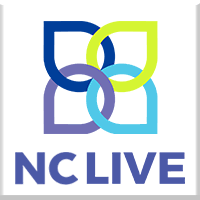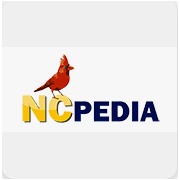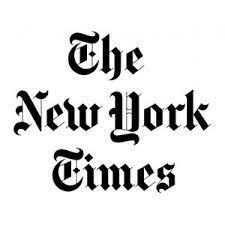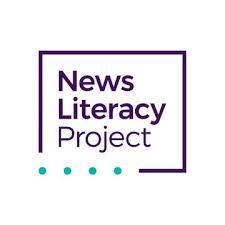Kathy Hurley
Jesse Isley
Shawn Krizanik
Alesha Lackey

NC LIVE
What is NC LIVE? The power of your library, online! We give you free access to e-books, audiobooks, videos, online magazines, newspapers, journals, and more.

NCpedia
NCpedia is an online encyclopedia that highlights North Carolina's unique resources, people, and culture to enrich, educate, and inform.
New York Times (text based)
New York Times (1980-current), New York Times Magazine (1997-current), and New York Times Book Review (1997-current) full text access is provided via U.S. Newsstream (ProQuest). This resource is text based.

New York Times - Digital
NYTimes.com is a multi-platform news tool that provides access to New York Times and International New York Times content, including breaking news, multimedia, reviews and opinion, blogs, videos and more. NYTimes is updated 24/7.
For the best experience, use Microsoft Edge browser.
NYTimes.com is a multi-platform news tool that provides access to New York Times and International New York Times content, including breaking news, multimedia, reviews and opinion, blogs, videos and more. NYTimes is updated 24/7. Access includes all online content except for the crossword puzzle. Full access is provided for NYTimes articles published between 1851 thru 1922, and between 1981 thru current day. Access to the years 1923-1980 is limited.
To access the New York Times via Charlotte Mecklenburg Library, you will need to use an individual New York Times account.
From inside the library:
- Use a library computer or connect your own device to the library wifi
- Go to nytimes.com/register
- Register with your personal email address or click on "login here" if you already have created a New York Times account
- Enjoy unlimited access to the New York Times!
For offsite access:
- Click on the remote access link
- Enter your library card number
- Click "Redeem" to get 24 hours of continuous access
- Register with your personal email address or click "login here" if you already have created a New York Times account
After 24 hours, you will need to redeem another pass by repeating these instructions for continued access. *A limited number of offsite passes are available per day.
Troubleshooting:
Do you get a screen like this? Are you using Google Chrome?
Click "Ignore" and you will go on to redeem a pass. We are unsure why Google Chrome is marking this an unsafe site. We have contacted NYTimes about a solution and are hoping they fix the issue. NYTimes recommends using Microsoft Edge browser for optimal experience.

News Literacy Project
News Literacy Project, a nonpartisan national education nonprofit, provides programs and resources for educators and the public to teach, learn, and share the abilities needed to be smart, active consumers of news and information and equal and engaged participants in a democracy.
It’s getting harder to separate fact from fiction.
News Literacy Project, a nonpartisan national education nonprofit, provides programs and resources for educators and the public to teach, learn, and share the abilities needed to be smart, active consumers of news and information and equal and engaged participants in a democracy.
What is news literacy? News literacy is the ability to determine the credibility of news and other content, to identify different, types of information, and to use the standards of authoritative, fact-based journalism to determine what to trust, share, and act on.
To access the free resources News Literacy Project offers for the public, click “For Everyone”.
Checkology
Customized version of News Literacy Projects e-learning platform for the public. People of all ages can now learn how to identify credible information, seek out reliable sources, and know what to trust, what to dismiss, and what to debunk.
Get Smart About News
Get Smart About News is a free newsletter designed for the public exploring timely examples of misinformation as well as press freedom and social media trends and issues.
Informable
With News Literacy Projects free mobile app, everyone can practice four distinct news literacy skills in a game-like format: distinguishing news reports from opinion pieces; advertisements from other types of information; false claims from credible evidence; and fact-based statements from opinion-based statements.
Podcast
Is that a fact?, News Literacy Project’s podcast, informs listeners about news literacy issues that affect their lives through informative conversations with experts working to combat misinformation.
Tips & Tools
How news-literate are you? Test and sharpen your news literacy skills with short activities, engaging quizzes and shareable graphics.
Are you an educator? News Literacy Project has tools available to you to help in the classroom. Click on “For Educators.”
